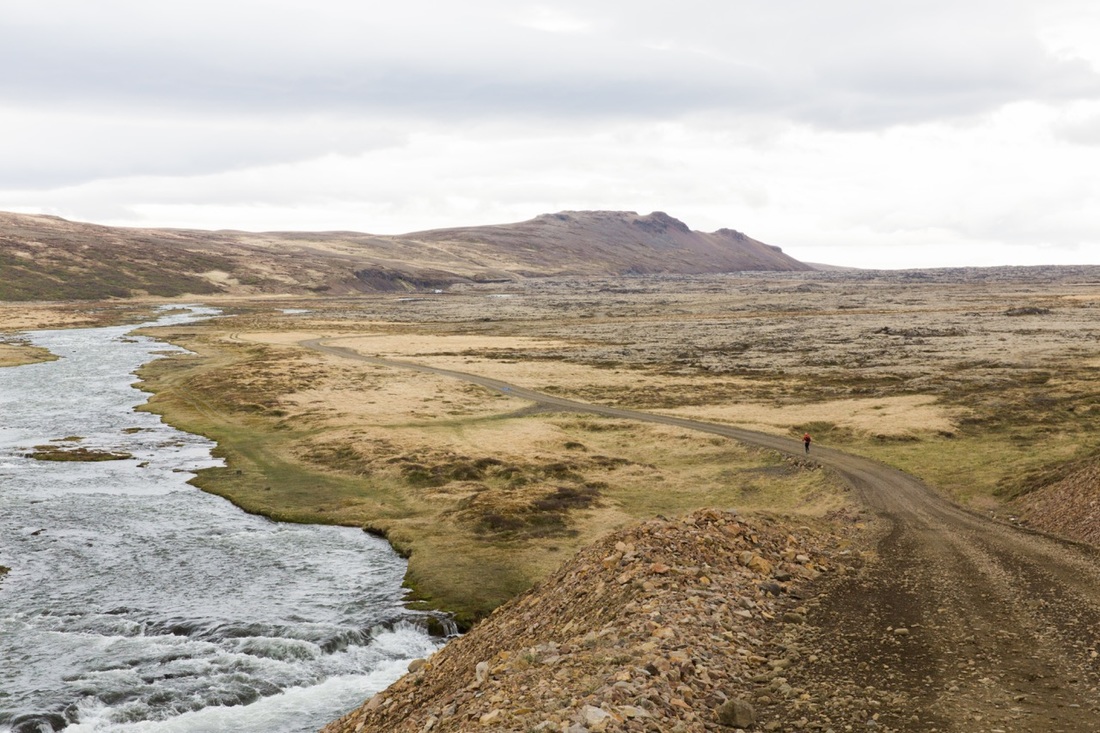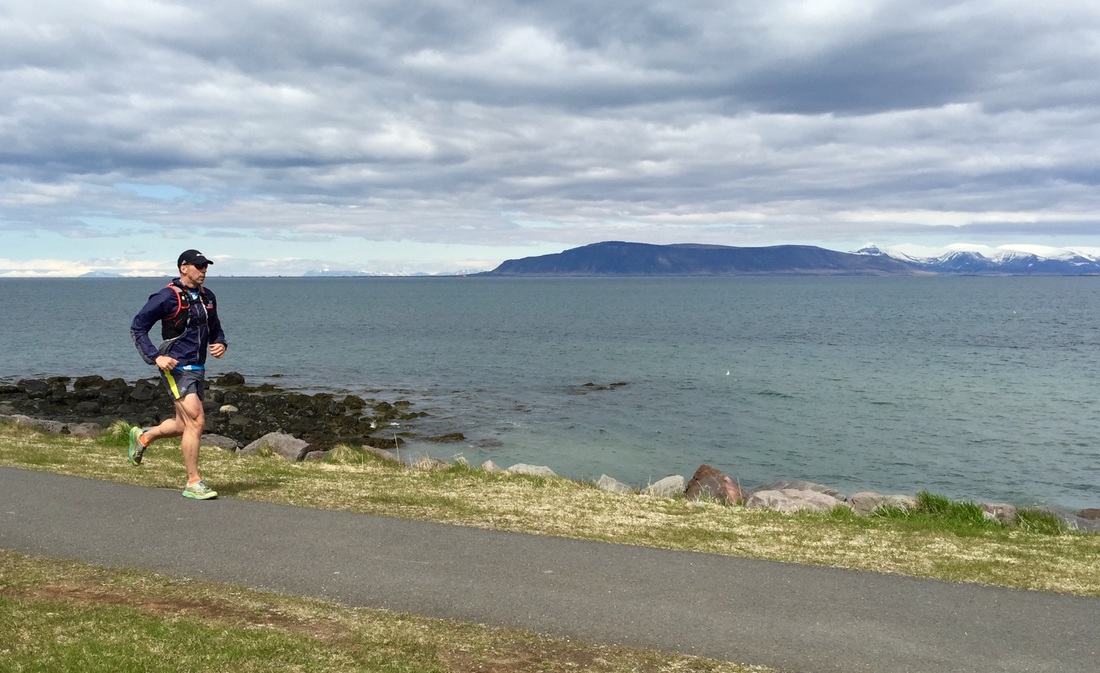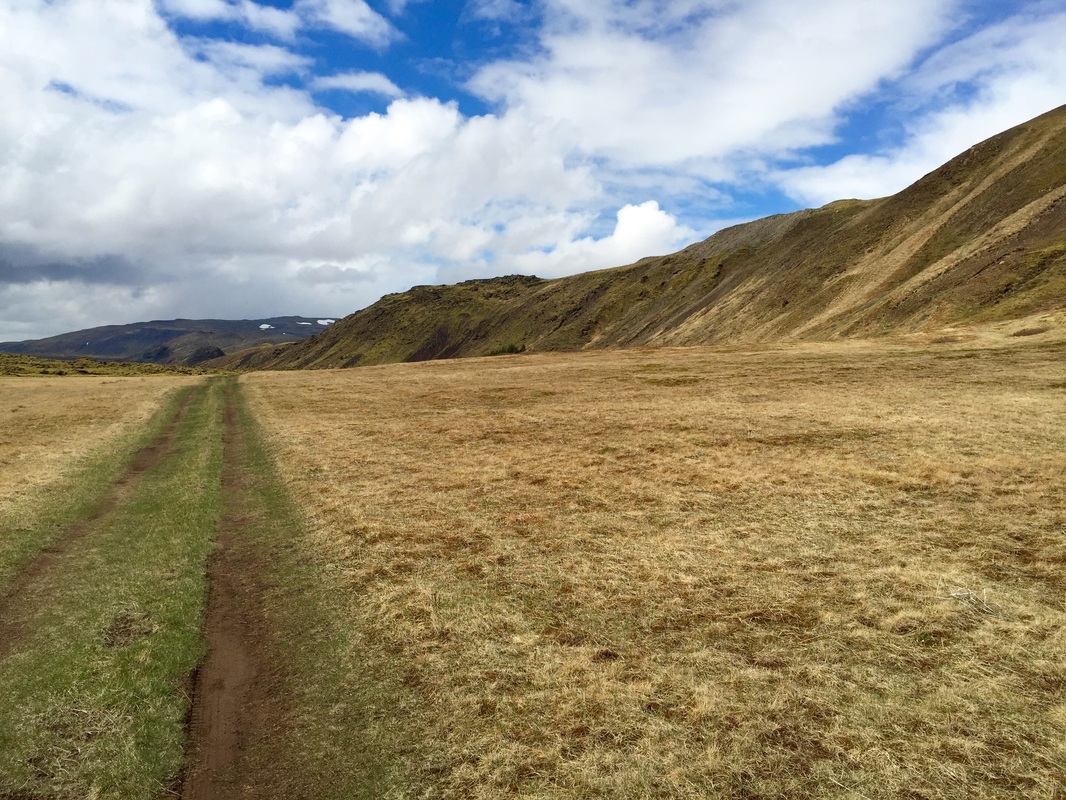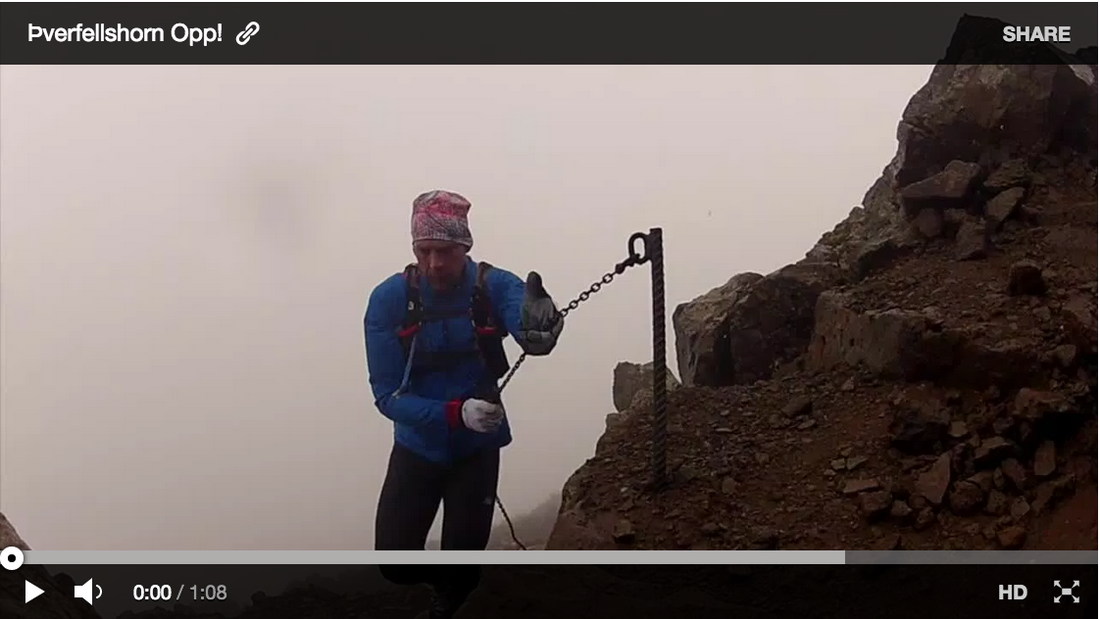
Running into the Norðlingafljót Valley. (Photo by Jill Fineis)
By Pavel Cenkl
ASC Microplastics Adventurer
If you trace Iceland’s south coast along the Atlantic Ocean to its beautiful north coast on the Greenland Sea, you’ll make a 240-kilometer arc across the western Icelandic highlands.
I ran that arc over the course of three days this summer, as part of an independent project called Climate Run. I followed trails, gravel roads, faint paths and sometimes no paths at all, running along rivers, over snowfields, beside waterfalls, glaciers, thermal springs and across the open tundra.
Before and after the run, I collected
ASC microplastics water samples from five locations in Iceland—from the southwest urban center of Reykjavik, to the isolated Westfjords in the northwest, to the harbors of the north coast. The coastline outside Iceland’s few cities and large towns is remote and sparsely settled, yet far from isolated from the ebb and flow of global commerce and our indelible imprint upon the oceans and coastal regions.

Cenkl runs near a water sampling location. (Photo by Orion Cenkl)
My goal of Climate Run is to bring attention to the relationship of outdoor enthusiasts with the changing climate, encouraging runners, climbers, skiers, mountain bikers and cyclists to serve as role models and as stewards of the planet. I chose Iceland because the Arctic is among the places on Earth where climate change is most apparent and pronounced.
Recent years have seen open water at the North Pole, melting permafrost in Siberia and Alaska, polar bears losing their habitat and coastal villages imperiled across the Arctic. Iceland itself has seen some glaciers retreat nearly 1,000 meters in the past 20 years, and the island nation loses more than 10 billion tons of ice annually.

The Climate Run followed trails, gravel roads, faint paths and sometimes no paths at all, running along rivers, over snowfields, beside waterfalls, glaciers, thermal springs and across the open tundra. (Photo by Orion Cenkl)
I am honored to work with Adventurers and Scientists for Conservation as part of the marine microplastics sampling program. I believe that all of the parts of this planet’s ecological system are inextricably interwoven; the microplastics accumulating in our oceans are just as much an indicator of our impact on the Earth as the changing climate.
At the limits of ourselves we come in closest contact with the world.
And this is a world that needs us.
Now.




